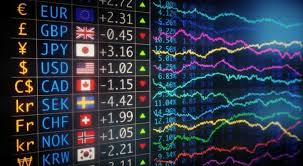
The Essential Role of Psychology in Forex Trading
In the fast-paced world of Forex trading, technical skills and analysis are absolutely vital, but they are not the only factors that guarantee long-term success. A crucial element that is often overlooked is the psychology of trading. The way traders think, feel, and react to market movements can significantly influence their decision-making processes and ultimately their profitability. Understanding the psychological aspects of Forex trading is essential for sustainability and growth. For those looking for a seamless trading experience, check out forex trading psychology Top MT4 Trading Apps, which can enhance your trading strategy while keeping you psychologically aligned.
The Importance of Trading Psychology
Trading psychology refers to the emotional and mental states that traders experience as they engage in their trading activities. The ability to manage these psychological factors can be as crucial as understanding fundamental and technical analysis. When traders are faced with the pressure of financial stakes, their emotions can take over, leading to irrational decisions. Emotional trading can lead to several pitfalls: overtrading, revenge trading, and fear of missing out (FOMO), among others. Each of these behaviors can chip away at a trader’s capital and destabilize their strategic plan.
Common Psychological Challenges in Forex Trading
Forex trading presents a unique set of psychological challenges that can hinder even the most well-prepared traders. Here are some common issues:
1. Overconfidence
After a series of successful trades, many traders may fall victim to overconfidence, believing that they can predict the market unerringly. This can lead to high-risk trades that can result in significant losses.
2. Fear
Fear is a natural response to trading; it can manifest as fear of losing or fear of missing out. The fear of losing money can prevent traders from executing trades, even when their strategy indicates it is the right moment to enter the market. Conversely, FOMO can push traders to enter trades that do not align with their analysis, leading to poor results.
3. Greed
Greed often rears its ugly head when traders become overly eager to capitalize on market movements. This insatiable desire for more can lead to neglecting risk management principles, resulting in significant financial losses.
4. Revenge Trading
After experiencing a loss, some traders may engage in “revenge trading,” a process of trying to recover losses by taking on more significant risks. This often leads to a vicious cycle of losses and emotional distress.

Strategies for Developing a Healthy Trading Mindset
To cultivate a healthy mindset in Forex trading, traders must develop self-awareness, discipline, and effective strategies for managing emotions. Here are some strategies that can help:
1. Set Realistic Goals
Every trader should set realistic, achievable goals. These should account for both winning and losing trades. Having clear objectives can help maintain focus and reduce emotional responses to market changes.
2. Implement Strict Risk Management
Consider designing a trading plan that includes strict risk management rules. Determine beforehand how much capital you are willing to risk on any single trade. This helps mitigate emotional turmoil during trades, allowing you to stay committed to your strategy.
3. Keep a Trading Journal
Documenting the details of each trade can be immensely beneficial. A trading journal allows you to reflect on emotional states during trades, decisions made, and the outcomes. This self-assessment can help traders identify patterns in their behavior and make necessary adjustments.
4. Take Breaks
Sometimes the best strategy is to take a step back. If trading becomes too stressful, or emotions start to cloud judgment, it’s prudent to take a break. This gives you time to regain composure and return with a clear mind.
5. Continuous Education
Forex trading is always evolving, and so should your knowledge. Engaging in continuous education, whether through reading books, attending webinars, or joining trading communities, can boost confidence and equip traders with updated strategies and tools.
The Role of Mindfulness in Trading
Mindfulness practices can also enhance trading psychology. Learning to be present and aware can help traders achieve a balanced emotional state. Techniques such as meditation, deep breathing exercises, or even physical activities can aid in reducing stress and keeping emotions in check. By fostering a more mindful approach, traders can reduce impulsivity, thereby making them more effective in their trading endeavors.
Conclusion
The psychology of Forex trading is a complex dance between emotional regulation and strategic decision-making. Acknowledging the mental aspects of trading can enhance a trader’s performance significantly. As much as technical analysis and market knowledge matter, understanding one’s emotions and how they affect trading choices can lead to more successful and sustainable outcomes. As you work towards becoming a proficient Forex trader, remember: your mindset is just as important as your market knowledge. By implementing the strategies discussed and staying aware of your psychological state, you can significantly improve your trading effectiveness.


